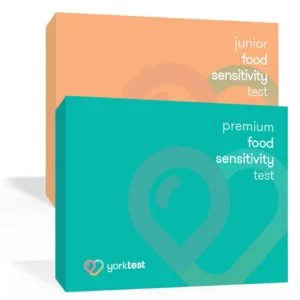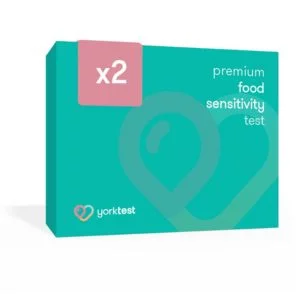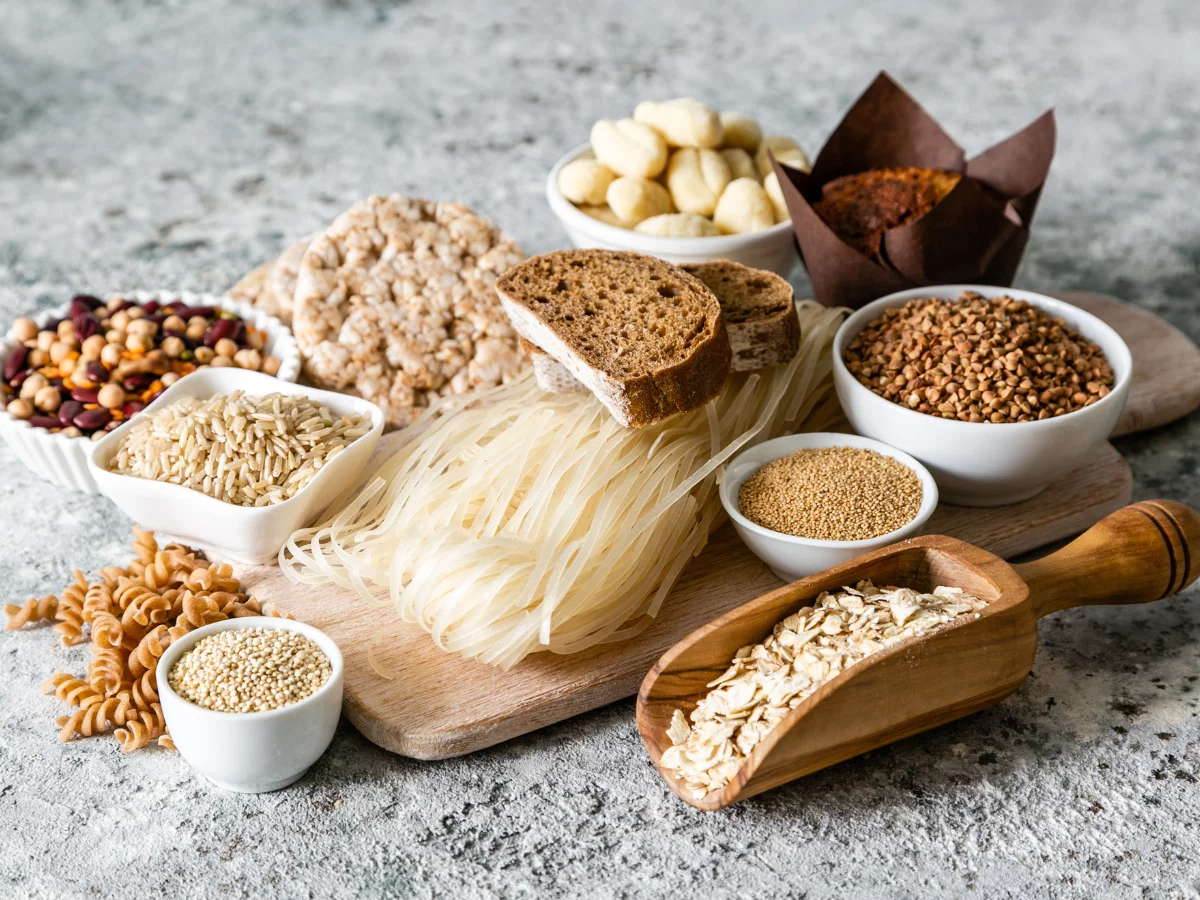A well-balanced diet fuels an active lifestyle. In an article on nutrition rules to fuel your diet, Mayo Clinic staff report that “not getting enough vitamins, minerals, and other nutrients can compromise your health and your performance.†An entire industry was built off of the ideology to use vitamins and supplements to improve performance and/or lose weight.
Altering your current nutrition plan may sound tedious, but it’s important if you live an active lifestyle. Throughout this guide, we’ll discuss what foods to consider, and avoid, to fuel your body before your next game.
Best Foods for an Active Lifestyle
There are six essential nutrients your body needs to generate energy:
- B vitamins: There are eight different types of B vitamins; thiamine, riboflavin, niacin, pantothenic acid, pyridoxine, biotin, folic acid, and cobalamin. All are essential for your overall bodily function.
- Carbohydrates: Carbohydrates (carbs) are vital to your health because they provide energy, help protect against diseases, and control your weight.
- Fiber: There are two categories of fiber, soluble (which does dissolve in water) and insoluble (which does not dissolve in water). Fiber is necessary to help the healthy bacteria in your gut digest and promote good gut health.
- Healthy fats: Healthy dietary fats are fats that give your body energy, promote cell function, and keep your organs warm.
- Iron: Iron is an essential mineral needed to maintain healthy blood.
- Magnesium: Magnesium is a mineral that can help regulate blood sugar, improve sleep, boost mood, and reduce risks of heart disease.
The human body relies on the digestive system to break down these nutrients “into parts small enough for your body to absorb and use for energy, growth, and cell repair.†Although these nutrients sound complicated, they can easily be found in a variety of foods. However, some individuals lack the foundational knowledge of where to find these nutrients, and as such, they lack the energy to enhance their performance.
Let’s take a closer look at the fueling foods that can boost your energy.
Berries
Most, if not all berries are jam-packed with a variety of nutrients. However, some are more nutritious than others. The eight healthiest berries you can eat are:
- Acai berries;
- Bilberries;
- Blueberries;
- Cranberries;
- Goji berries;
- Grapes;
- Raspberries;
- Strawberries.
This is because these eight fruits are loaded with antioxidants. According to Medical News Today in an article on the benefits of antioxidants, “antioxidants are substances that can prevent or slow damage to cells caused by free radicals, unstoppable molecules that the body produces as a reaction to environmental and other pressures.â€
Incorporating physical activity of any kind into your daily routine will require you to maintain the health and wellness of your muscles, as well. The fewer free radicals you have in your body, the more energy you may have. Eating more berries gives your body the extra antioxidants it needs to rid itself of these free radicals before your next game.
Nuts
Similar to berries, many nuts provide an abundance of nutritional value, but there are some more energizing than others. The top five nuts to eat to fuel your body are:
- Almonds;
- Brazil nuts;
- Macadamias;
- Pistachios;
- Walnuts.
Additionally, nuts are an excellent source of other necessary fuel-providing nutrients like protein, fiber, and unsaturated fats.
Leafy Greens
Leafy greens, like the ones listed below, are rich in nitrates. Nitrates are natural chemicals that are found in the soil, air, and water that are used to stop bacteria growth and enhance food color. One study on the impact of a nitrate-rich diet on athletes reports that “a diet consisting of nitrate-rich foods… helps boost blood flow and increase muscle function, which leads to a better athletic performance.â€
There are many leafy greens to incorporate into your diet, including but not limited to:
- Arugula;
- Cabbage;
- Kale;
- Spinach;
- Swiss chard.
Implementing the above greens into every meal, especially as someone with an active lifestyle, can help to increase your energy and benefit your overall performance.
Whole Grains
Not to be confused with whole wheat, whole grain bread and other baked goods are made of any entire whole grain kernel. For example, healthy whole grains include:
- Barley;
- Brown rice;
- Oats;
- Quinoa;
- Spelt.
Although carbohydrates have been vilified in the past, whole grains that are rich in carbohydrates are essential for any healthy diet and many are often rich in other essential vitamins. When consumed, whole grains are converted into fuel for your body. Whole grains are essential for gut health, as well.
Eggs
Eggs, specifically those produced by chickens, have been a reliable source of protein for athletes worldwide. Like other nutrients needed, protein is converted into energy for your body. Leucine, an essential amino acid used to help muscles break down glucose, has been found in eggs as well.
Consuming eggs daily provides your body with additional protein and the leucine it needs to properly break nutrients into fuel. Leucine is also vital for helping your muscles recover after physical activity.
Lean Meat
As opposed to fatty meats, lean meat has a lower fat content. While fats are necessary for energy, there are unhealthy fats commonly found in some meats that are worth avoiding before the big game.
Examples of lean meats with low-fat content include, but aren’t limited to:
- Chicken;
- Fish;
- Lamb;
- Pork.
Beef isn’t a typical example of low-fat meat. However, this doesn’t mean you have to avoid it at all costs. Beef products labeled 90% lean are ideal for athletes attempting to increase lean meat consumption.
Legumes
A legume is the perfect mixture of seed and plant, creating a one-stop shop for plant-based protein and fiber. Examples of fueling legumes are:
- Black beans;
- Chickpeas;
- Kidney beans;
- Lentils;
- Navy beans;
- Peanuts;
- Peas;
- Pinto beans;
- Soybeans.
When consumed, legumes are broken down by healthy bacteria, also known as pre and probiotics to produce healthy fatty acids. These fatty acids are then used to fuel the body. Legumes are a great pre and post-activity protein snack for athletes who need the protein, but don’t consume meat.
Water
While water may not have any nutritional benefits, it’s crucial for staying hydrated. Incorporating water is a must if you’re an athlete or physically active individual. Not only does staying hydrated help fuel your body, but it also helps with the muscle recovery process and lubricates your joints, as well.
Worst Foods for an Active Lifestyle
Despite your desire to eat a quick snack before a workout, it’s important to be mindful of what you grab when doing so. This is because there are foods that may hinder your performance, rather than fuel it.
Instead, skip the pre-workout snack entirely and exercise on an empty stomach. Doing so may sound strange, but working out on an empty stomach can help your performance, based on your goals.
If you do eat before a workout, it’s best to do so wisely. It’s no secret that some ingredients like saturated fats and added sugars do more damage to your body than good, especially for those with an active lifestyle.
Let’s examine the various foods athletes should avoid to protect their active lifestyle.
Anything Fried
Frying food in any cooking oil adds unnecessary calories and unsaturated fats to foods that weren’t there before. Some folks attempt to mask the taste of healthy foods by frying them. While this may seem like a health hack, it’s anything but.
Additionally, overconsumption of fried foods can increase your chances of health risks like:
- Diabetes;
- Heart disease;
- Obesity.
All of which make physical activity difficult to partake in.
Foods That Trigger Intolerance or Sensitivity Reactions
Although it may seem like common sense to avoid any foods that you’re allergic to or sensitive to, unfortunately, food sensitivities aren’t always a good enough reason for people to cut back. Common food allergies and sensitivities include, but certainly aren’t limited to:
- Dairy;
- Eggs;
- Fish;
- Gluten;
- Tree nuts.
Whether it’s intentional or not, consuming foods you’re sensitive to can significantly impact your physical performance. This is why it’s worth discovering what foods you’re allergic and/or intolerant to by using a premium food sensitivity test. This way you’re not guessing the next time you debate eating a possibly triggering food.
Fruit Juice
According to Healthline, some people consider the sugar content in fruit juice to be just as high as soda. This can be tricky to understand, since at a glance, consuming fruit juice, especially from berries, may contain vital nutrients and other essential vitamins necessary for performance.
However, most fruit juice contains added sugars. Any sugar that isn’t natural to a product should be avoided at all costs. Consuming too much could lead to more health problems.
Soda and Energy Drinks
Just as with fruit juice, soda and energy drinks are bad for our health because of the excessive amounts of sugar included in each. Even those marked “sugar-free†are bad for your health, as they’re pumped with artificial sweeteners to maintain a more sweet taste.
Athletes who find themselves crashing or with low stamina may turn to energy drinks for temporary alertness. While this may seem like it’s helping at the time, it can damage your body.
One 2019 report found that energy drinks raise your heart rate and blood pressure over a longer period than what was originally studied. Ultimately, this could be especially dangerous for those who have blood pressure issues, heart disease, or other heart abnormalities. People with a family history associated with any of these health concerns should also avoid these drinks.
Granola Bars and Protein Bars
Granola and protein bars are additional examples of foods that are labeled as fuel-providing foods, but are high in sugar and other processed ingredients. Protein bars can be great as long as you ensure the ingredients are clean. This can be done by thoroughly reading nutrition labels for the complete ingredients list. Bars with essential nutrients may boost your energy, but those high in saturated fats or sugar may slow you down.
Processed Meats
Anything you consume that’s processed should be left out of your diet, especially processed meats. Examples of common processed meats include:
- Beef jerky;
- Canned meat;
- Ham;
- Hot dogs;
- Meat from fast food;
- Processed chicken;
- Sausage links.
Remember to eat lean meats like the ones mentioned earlier, instead of the processed meats above. Reducing the amount of processed food you eat not only increases your energy, but improves your health and wellness overall.
White Bread
As you may remember, whole grain bread can be made using different whole grains.
White bread, on the other hand, is a processed grain that has been bleached to achieve the blank slate color. Bread is a great source of carbohydrates, but not when it’s been processed as white bread typically requires.
While white bread may be tasty, there are dangerous side effects to eating it. One author in an article on the dangers of white bread writes how consuming too much daily can lead to:
- Constipation;
- High blood sugar;
- An increased risk of having a stroke;
- Skin breakouts;
- Weight gain.
Try forgoing the bun on your burger or replacing white bread with a whole grain wrap for your next sandwich. Your health, and energy levels, will thank you.
Alcohol
You may want to skip out on an alcoholic beverage the next time you unwind after a long day. Consuming excessive alcohol routinely can deplete your energy levels at a rapid rate.
Alcohol consumption impacts your sleeping and eating habits, as well. From here, your ability to perform your favorite activity to the best of your ability is severely hindered.
Remember, health is wealth. This is why it’s crucial to prioritize your health — not for the sake of the game, but for the sake of your energy in the long run.











